Introduction
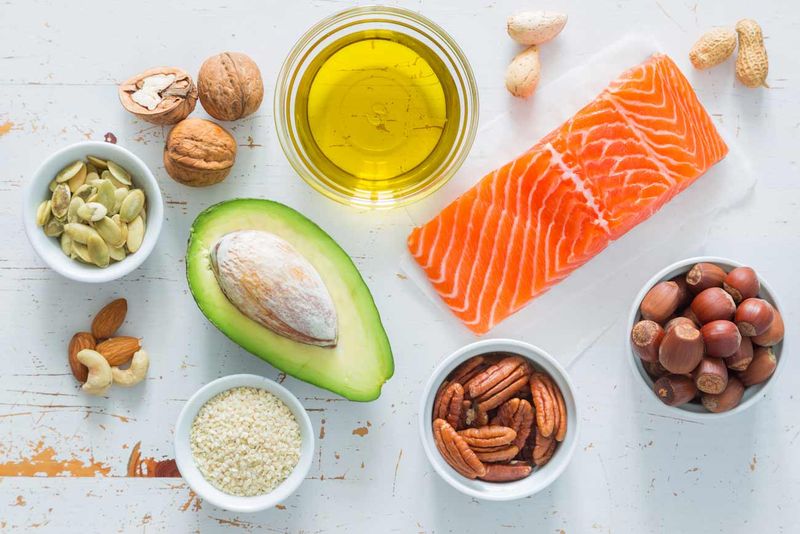
What we eat directly affects how we feel, both physically and mentally. Research shows certain foods contain nutrients that can help fight depression by boosting mood-regulating brain chemicals like serotonin and dopamine. Adding these natural mood-lifters to your diet might help brighten your outlook alongside other treatments for depression.
1. Fatty Fish: Nature’s Brain Food
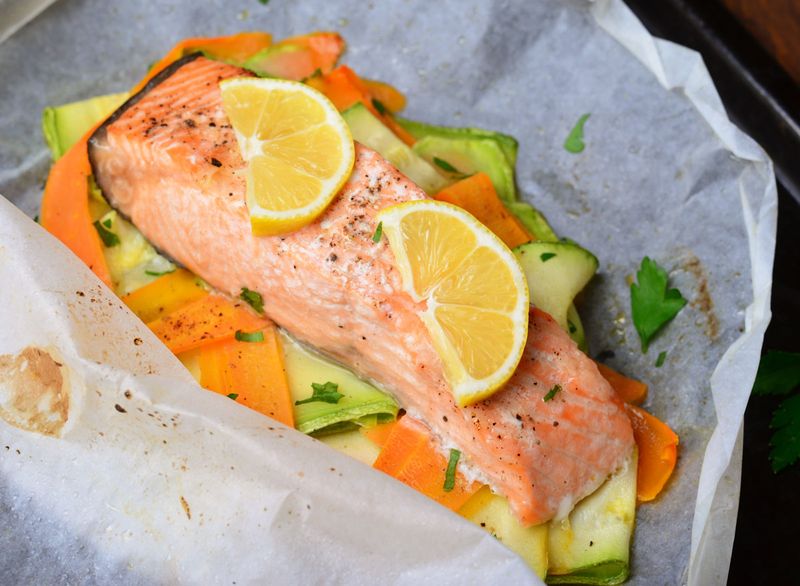
Salmon, mackerel, and sardines pack a powerful punch against the blues. These fish contain omega-3 fatty acids that help build brain cells and reduce inflammation linked to depression. Your brain is about 60% fat, and omega-3s are a crucial building block. Studies show people who regularly eat these fish have lower rates of depression than those who don’t. Even two servings weekly might make a difference in your mood. The vitamin D in these fish offers another mood-boosting benefit, especially during darker winter months when sunlight is scarce.
2. Dark Chocolate: Sweet Mood Medicine

Craving chocolate when you’re feeling down isn’t just about the sweet taste. High-quality dark chocolate (70% cocoa or higher) contains compounds that trigger the release of endorphins—natural mood elevators. The flavonoids in dark chocolate increase blood flow to your brain, improving function and mood. One study found that participants who consumed dark chocolate reported feeling calmer and more content. A small square daily might be all you need for the benefits. Remember that moderation is key—too much sugar can actually worsen mood swings.
3. Fermented Foods: Gut-Brain Happiness Connection
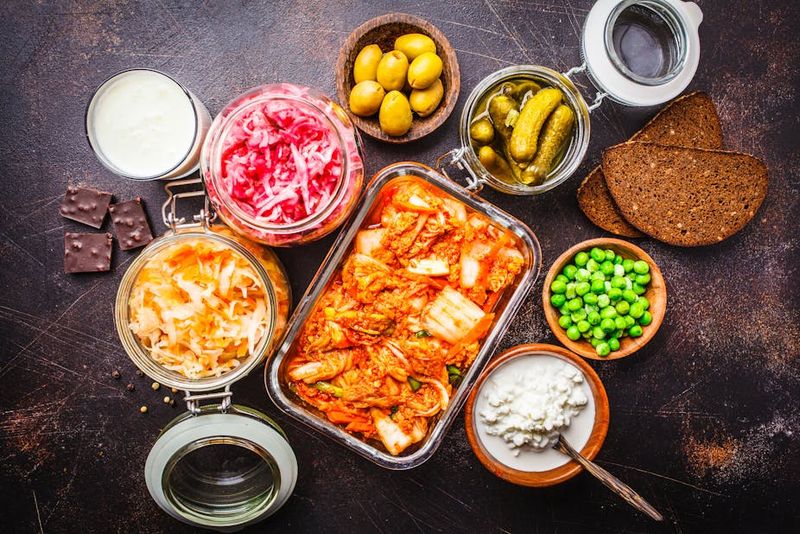
Did you know your gut produces about 90% of your body’s serotonin, the happiness hormone? Yogurt, kimchi, sauerkraut, and kefir contain beneficial bacteria that support this process. These probiotic-rich foods help reduce inflammation and stress hormones that can trigger depression. Research shows people who regularly consume fermented foods report fewer symptoms of anxiety and depression. Try adding a serving of these tangy treats daily. The diverse bacteria they contain create a healthier microbiome, which communicates directly with your brain through what scientists call the gut-brain axis.
4. Berries: Colorful Mood Brighteners
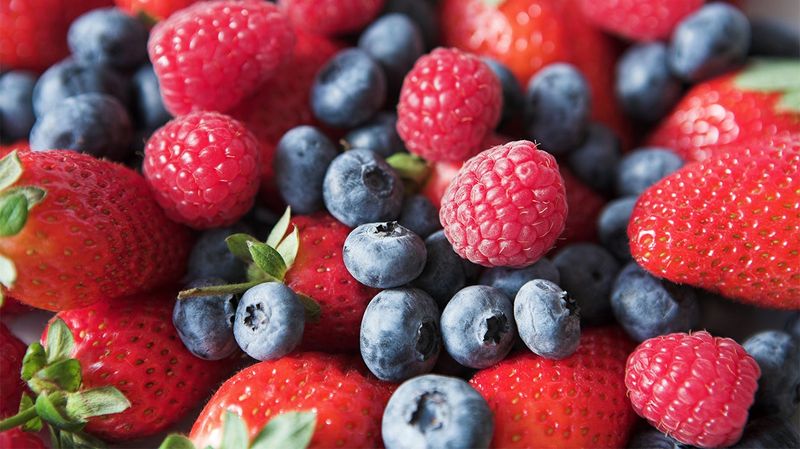
Blueberries, strawberries, and blackberries aren’t just delicious—they’re packed with antioxidants that fight oxidative stress, a factor in depression. Their vibrant colors signal the presence of anthocyanins, compounds that reduce inflammation in the brain. Research suggests eating berries regularly may delay memory decline and improve communication between brain cells. One handful provides a healthy dose of vitamin C, which helps reduce the effects of stress hormones. Fresh or frozen, berries make perfect snacks or toppings. Their natural sweetness satisfies sugar cravings while delivering mood-supporting nutrients instead of the crash that comes from processed sweets.
5. Leafy Greens: Folate-Rich Mood Supporters
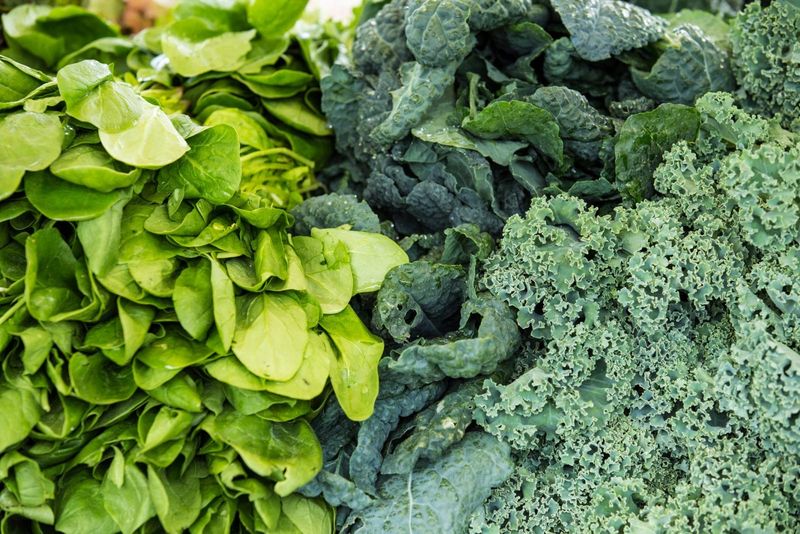
Spinach, kale, and Swiss chard contain folate, a B vitamin that helps produce mood-regulating neurotransmitters. Many people with depression have lower folate levels, making these greens a smart addition to your meals. The magnesium in leafy vegetables helps reduce anxiety and improve sleep quality. Just one cup of these greens provides multiple nutrients that support brain health. Adding them to smoothies makes them barely noticeable if you’re not a fan of their taste. Research shows people who eat more leafy greens have slower cognitive decline and better mental health as they age.
6. Bananas: Portable Mood Stabilizers
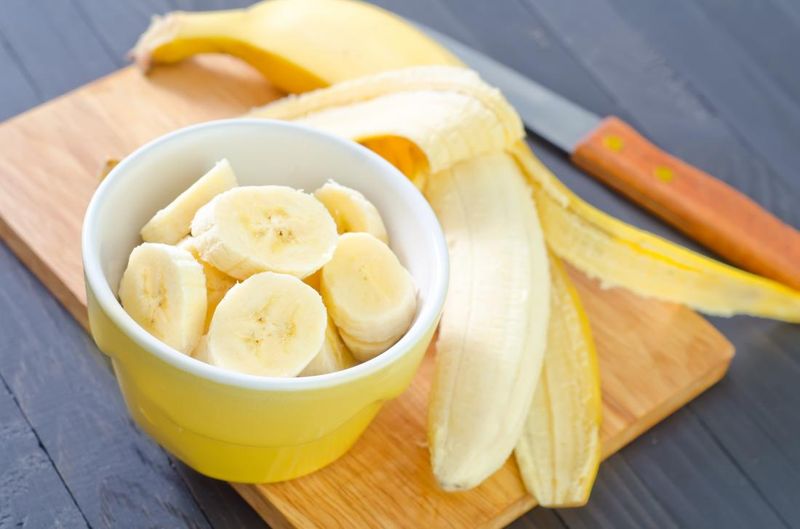
The humble banana offers a perfect package of mood-supporting nutrients. Rich in vitamin B6, bananas help your body produce serotonin and dopamine, chemicals that regulate mood and motivation. Their natural sugars provide quick energy while fiber helps maintain stable blood sugar levels. Fluctuating blood sugar can cause irritability and mood swings. Bananas also contain tryptophan, an amino acid that converts to serotonin in the body. The potassium they provide helps reduce stress and anxiety by regulating heartbeat and sending oxygen to the brain. Keep a few on your counter for an easy mood-boosting snack.
7. Oats: Steady Energy for Balanced Moods
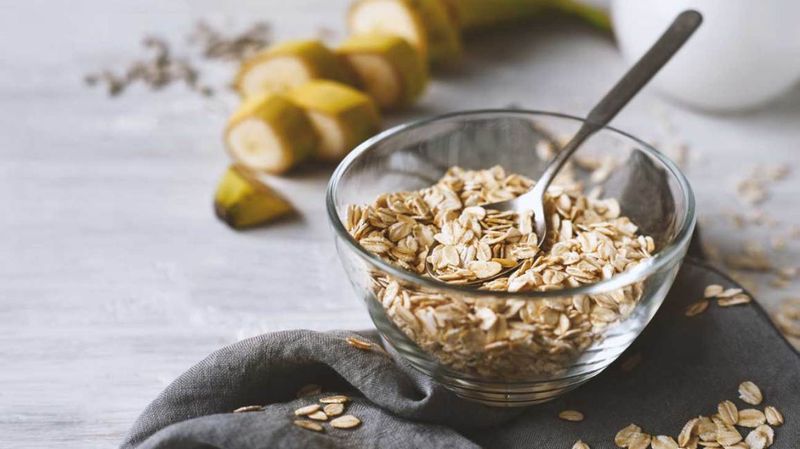
Starting your day with a bowl of oatmeal provides complex carbohydrates that gradually release energy, preventing the mood crashes associated with simple sugars. Oats boost serotonin production without the spike and drop of refined carbs. They’re also rich in iron, which helps prevent fatigue and depression. Many people with depression have low iron levels, making oats a helpful dietary addition. The fiber in oats supports gut health, another factor in mood regulation. Steel-cut or rolled oats offer more nutrients than instant varieties. Try topping yours with other mood-boosting foods like berries and nuts for maximum benefit.
8. Nuts and Seeds: Small Packages of Mood Support
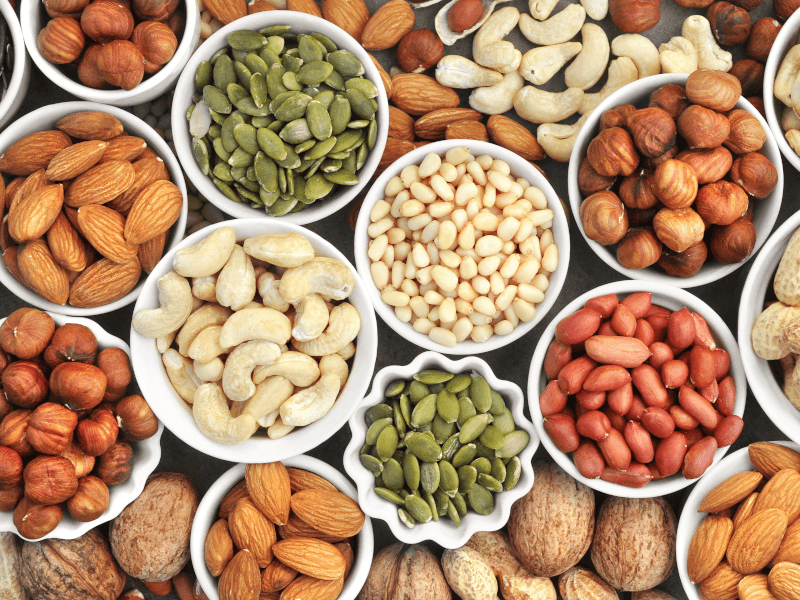
Walnuts, with their brain-like appearance, actually benefit the organ they resemble! Along with chia seeds, flaxseeds, and pumpkin seeds, they provide omega-3 fatty acids and zinc—nutrients linked to better mental health. Selenium in Brazil nuts has been shown to reduce inflammation and improve mood. Just two Brazil nuts provide your daily selenium needs. The healthy fats in these foods help your body absorb fat-soluble vitamins needed for brain function. A small handful daily provides brain-supporting nutrients without too many calories. Try sprinkling them on salads, yogurt, or oatmeal for added crunch and mood benefits.
9. Avocados: Creamy Brain Protectors
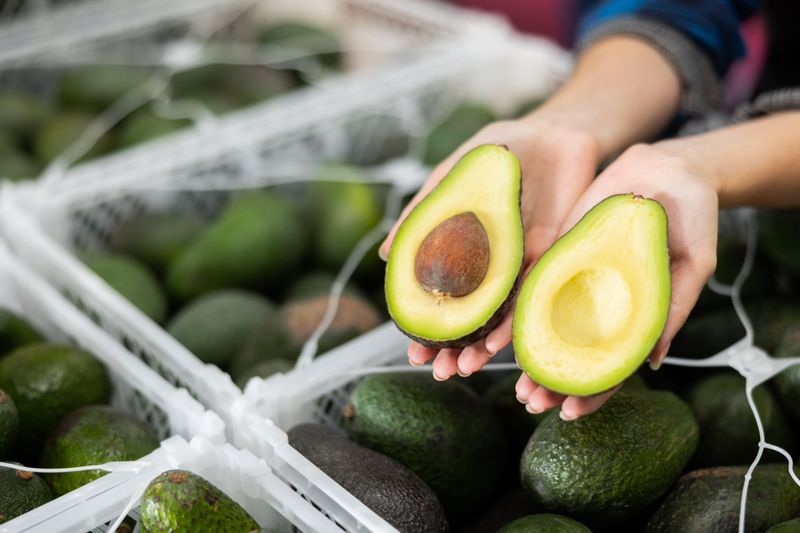
Avocados deliver healthy monounsaturated fats that support brain cell structure and function. Their high vitamin B content helps your body manage stress and produce mood-regulating neurotransmitters. Potassium in avocados helps reduce blood pressure, creating a calming effect during stress. The folate they contain has been linked to lower rates of depression. Half an avocado provides fiber that feeds beneficial gut bacteria linked to better mood. Their creamy texture makes them satisfying additions to meals. Spread on toast, added to smoothies, or mixed into salads, avocados provide brain nutrition that may help ward off depression.
10. Green Tea: Calming Cuppa for Better Moods
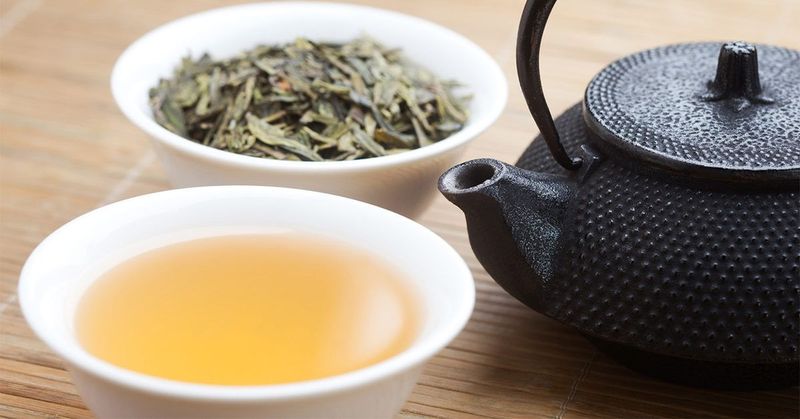
Green tea contains L-theanine, an amino acid that increases calming brain chemicals while reducing chemicals that cause anxiety. This creates a relaxed alertness without the jitters caffeine alone can cause. The polyphenols in green tea protect brain cells and reduce inflammation. Regular green tea drinkers show lower rates of depression in multiple studies. Swapping one coffee for green tea provides the gentle lift of caffeine with added mood benefits. The ritual of brewing and sipping tea can itself be meditative and mood-soothing. Try having a cup in the afternoon when energy and mood often dip.

Comments
Loading…